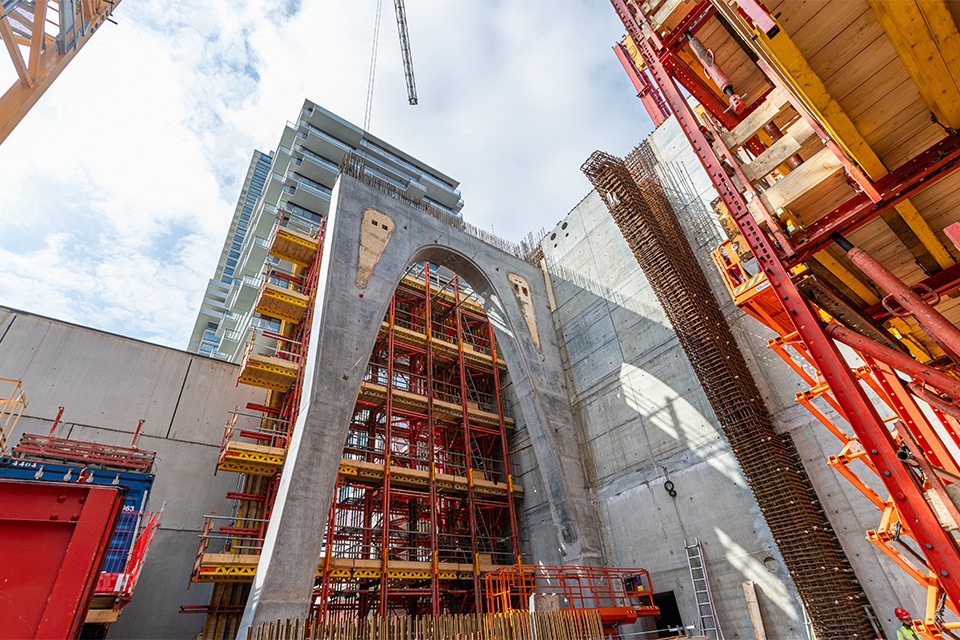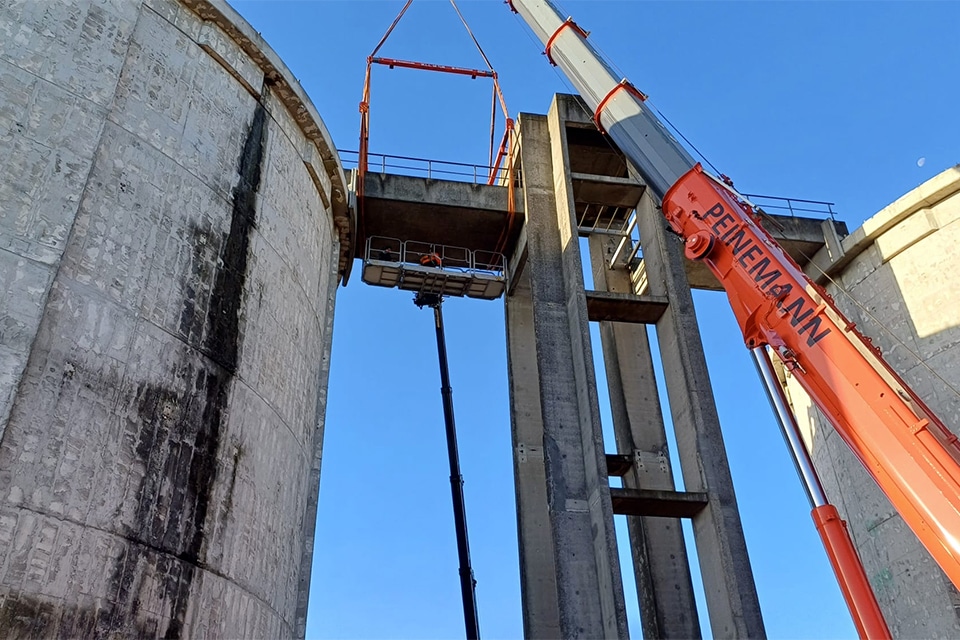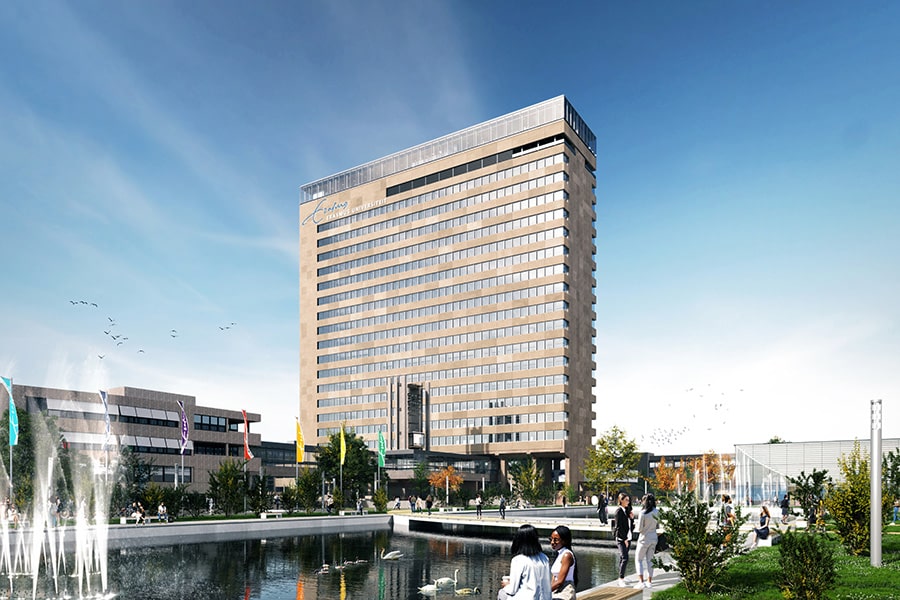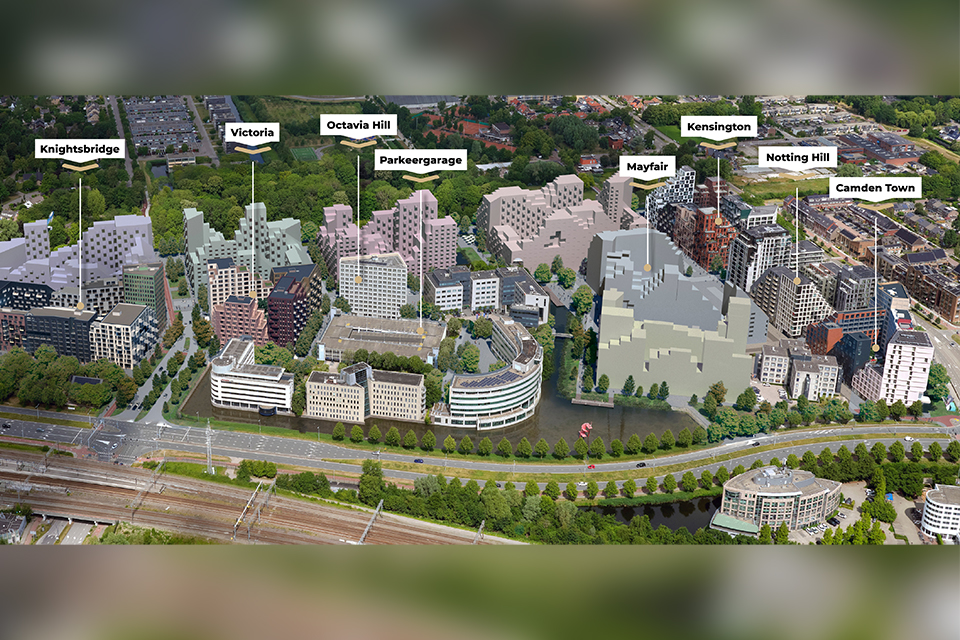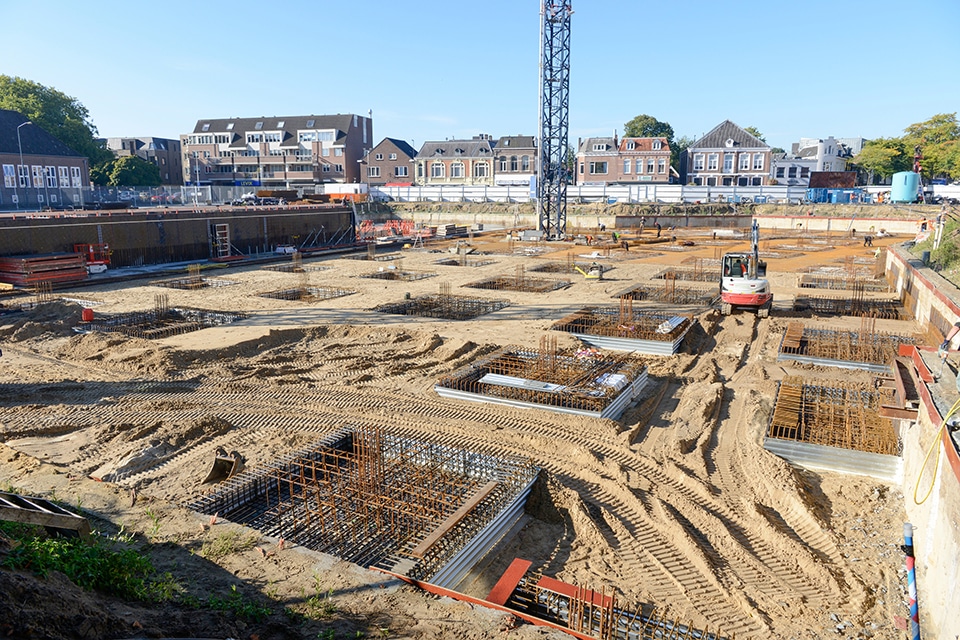
Challenging construction pit for Walkwartier in Oss
For years people in Oss have been talking about it: the renovation of the ugliest building in town, the old V&D building. BodemBouw was one of the first parties to start work on the construction site at the Walkwartier. Project Manager Djordy van den Eijnde talks about the construction pit for the realization of the basement under the building and the challenges and risks involved.
BodemBouw realized a building pit so that the Walk Quarter could be fully submerged. "And that's a huge area," Van den Eijnde explains. "Making a basement is always a big challenge. Especially if it's in the inner city, like here in Oss."
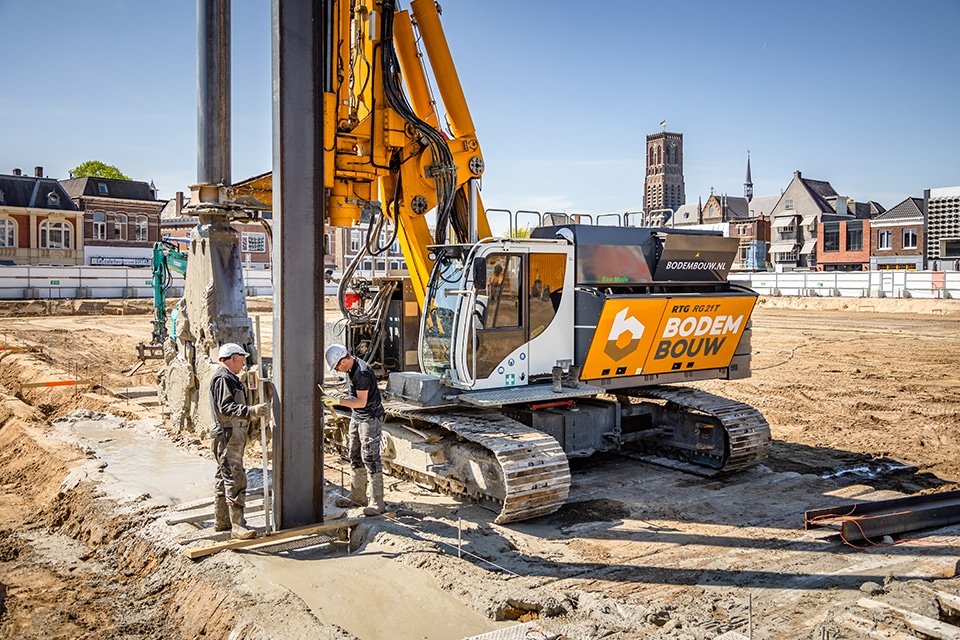
Initially, the construction pit would be made with a sheet pile wall and a water glass injection layer as an underlayment. That layer is placed horizontally in the ground so that groundwater does not flow into the construction pit. In this way, the risk to the surrounding area is limited because the groundwater remains level. Van den Eijnde: "Still, water glass is a risky technique. In Oss, for example, the area was too large and the ground was not homogeneous enough to do that properly."
'Every project is different'
Often companies choose a standard sheet pile too quickly, Van den Eijnde argues. "But we look at the whole picture: what soil structure is there? What is the required depth? And the groundwater level? Are there any sensitive objects nearby? Every project and every location is different. With our practical knowledge, we know exactly in which soil you can realize what type of cofferdam." The final idea? "In Oss, there are naturally water-inhibiting layers in the ground, such as loam. However, these lie about 18 to 20 meters below ground level. Above that is a thick layer of hard sand. In principle, you can build an excavation pit without a WG injection layer if you can reach those deeper water-retention layers. But as deep as here in Oss you cannot install sheet piling, especially not in the inner city."
SoilBouw therefore chose the Cutter Soilmix system. "With the CSM system, we can mill vibration-free in a relatively simple way through the harder sand layers to reach the water-inhibiting loam layers, without risking or inconveniencing the surroundings. And because you only need to reinforce and reinforce the walls for the upper part (the lower part only needs to turn back water), this is also a fairly economical option."
Reduced nitrogen emissions
BodemBouw's alternative solution is not only safer and more affordable, it also reduces nitrogen emissions. "You use fewer techniques for one construction pit. That results in more nitrogen savings than if you bet on electric equipment."
BodemBouw is used to completing hefty projects, but the size of the basement at the Walk Quarter was unique to it. "That was challenging in the beginning. It's always exciting when you come up with an alternative idea. You hope it works ánd that the collaborating parties accept it. Fortunately, in the end it turned out to be a perfect fit. And then you have a win-win situation for everyone."
